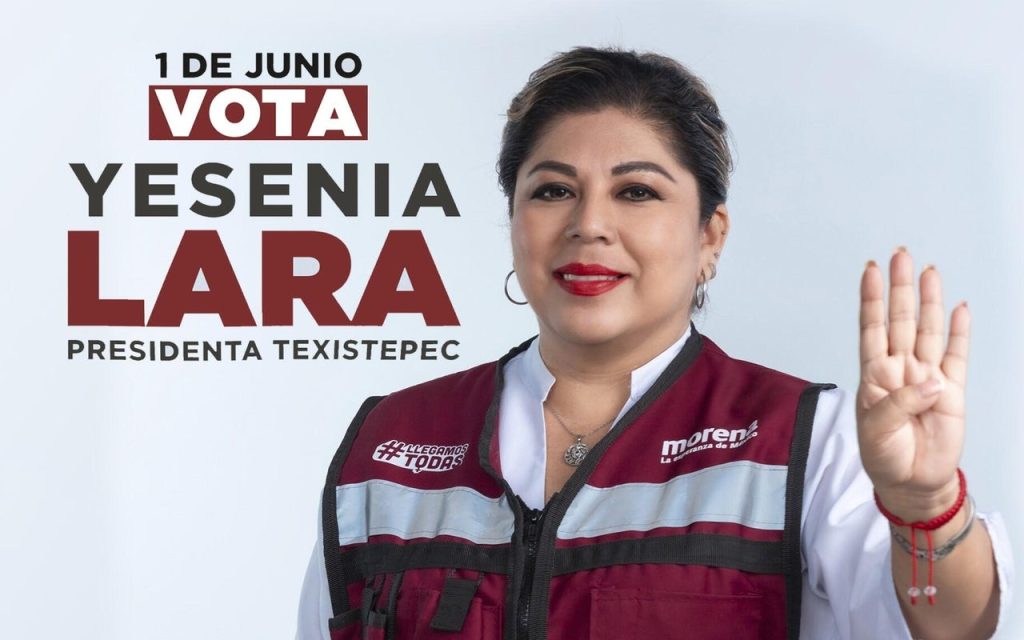Political violence in Mexico took a deadly turn again on Sunday when Yesenia Lara, a mayoral candidate from President Claudia Sheinbaum’s ruling Morena party, was shot and killed alongside three of her supporters during a campaign event in the eastern state of Veracruz.
The ambush occurred during a daylight procession, where motorcycles and supporters bearing Morena flags marched in support of Lara’s candidacy for mayor of Texistepec. The event, meant to be a public show of unity and hope, devolved into terror when gunfire erupted. A Facebook Live broadcast captured the chaos, screams, people fleeing in panic, and the chilling crackle of automatic gunfire.
Lara, a prominent local figure who had spent the day rallying with residents, was among four people killed in the attack. Three others were wounded. Shocking images shared online shortly after the shooting appeared to show the victims’ bodies lying motionless on the street, a gruesome reminder of the escalating political violence plaguing the country.
“We will find those responsible for the cowardly murder of the Morena candidate and supporters in Texistepec,” Veracruz Governor Rocio Nahle declared via social media. “No position or office is worth a person’s life.”
Mexico’s Attorney General’s Office has launched an investigation, though no arrests have been announced. Authorities have yet to publicly confirm whether organized crime was behind the attack, but the region has long been beset by cartel activity and turf wars.
Just hours before her death, Lara posted campaign photos to Facebook, writing: “The strength of our youth is the vitality that motivates me to keep walking day by day.” Her message now reads like a haunting farewell.
A Pattern of Political Assassinations
Lara’s killing is far from an isolated case. It follows a disturbing pattern of violence against politicians, especially at the local level, as Mexico grapples with the deadly entanglement of politics, cartels, and corruption.
Only two days earlier, Cecilia Ruvalcaba, a councilmember from Jalisco, was gunned down in a hospital. In April, senior government official José Luis Pereira was executed while dining at a restaurant. In December 2024, a congressman from the ruling coalition was also shot dead, again, in Veracruz.
Even more horrifying, in October 2024, a sitting mayor in Guerrero was murdered and decapitated. The following month, a former prosecutor and a local police official were arrested in connection with the brutal crime. And in June 2024, violence surged across southern Mexico, where a mayor and several other local politicians were assassinated in quick succession.
In March, a mayor dining with his teenage son was shot dead in Morelia, the capital of Michoacan state. His son survived, but the trauma lingers.
These killings form a grim timeline of terror that has haunted Mexico’s political landscape for years, a relentless campaign of intimidation, silencing, and slaughter.
Since 2006, an estimated 480,000 people have been murdered in Mexico amid a wave of criminal violence driven by the multibillion-dollar drug trade. Politicians, especially at the municipal level, are frequently targeted by cartels looking to control local governments, police departments, and public contracts.
As tributes pour in for Yesenia Lara, her death has sent shockwaves through the political community and ignited new demands for government accountability. Her supporters remember her as a passionate advocate for her town, committed to improving education and youth development, a dream now cut short by gunfire.
“Violence is not the future we want for our children,” wrote one supporter on social media. “We cannot continue to let bullets choose our leaders.”
As the investigation unfolds, one thing remains clear: Mexico’s war on corruption and organized crime has claimed another victim, not just a candidate, but the hope she symbolized.



